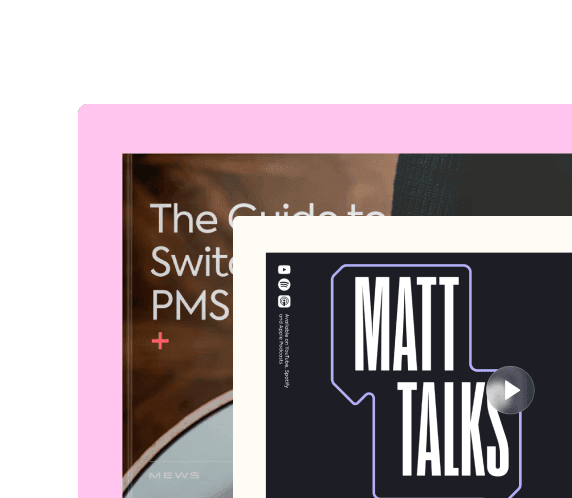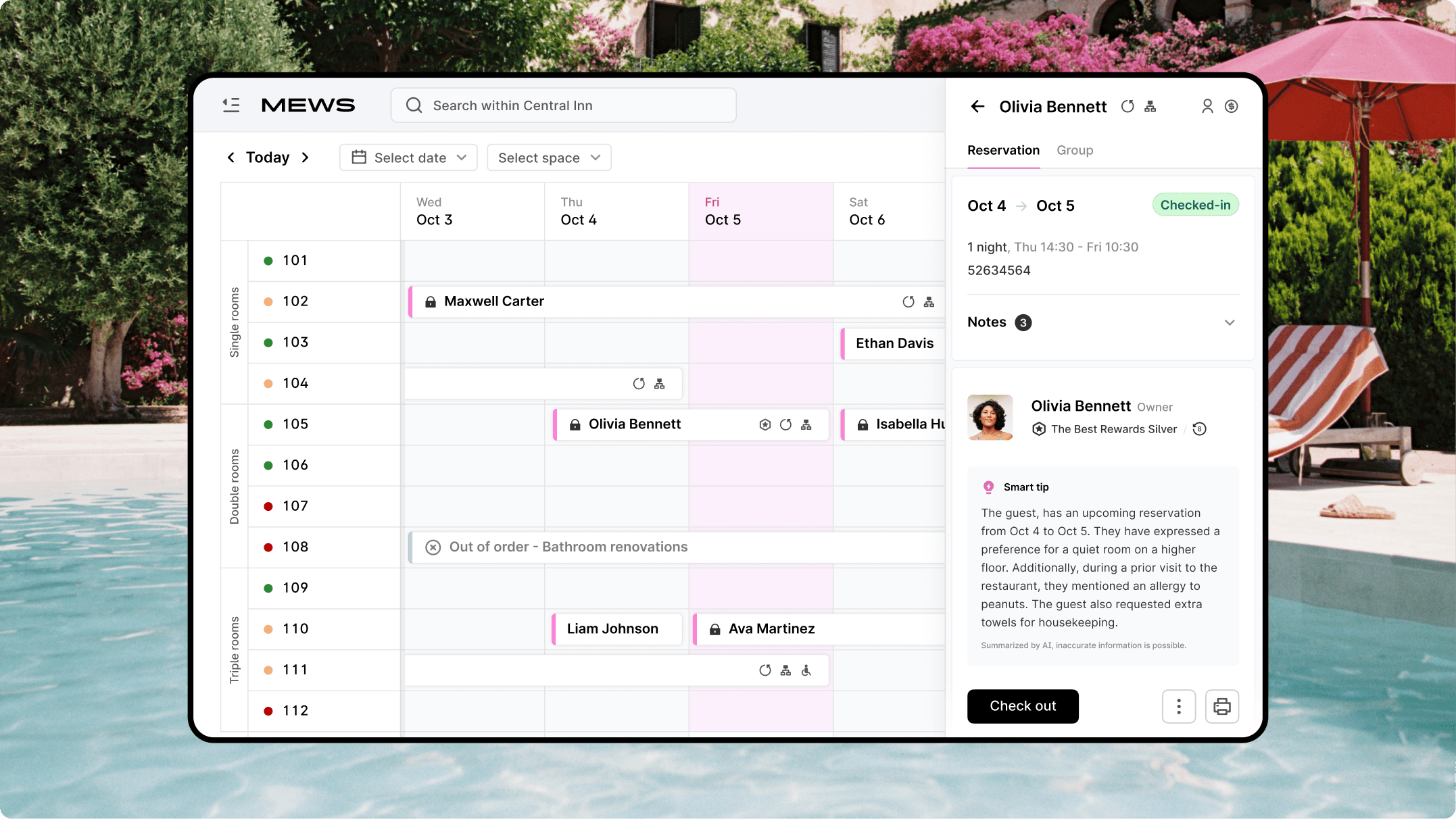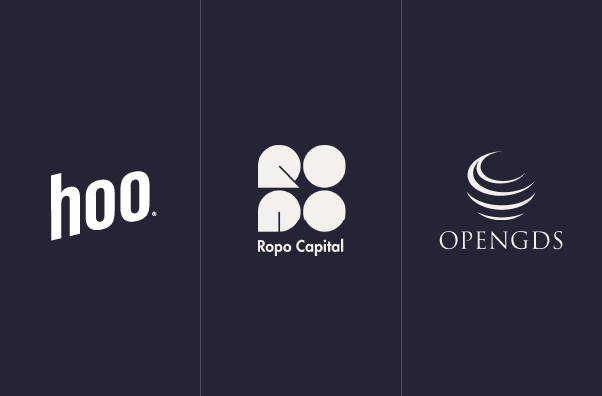Back in the simpler times of 2018, a Fuel Travel survey found that 55% of hotel managers weren’t satisfied with their current property management system. The sad reality is that not much has changed since then, and there are still countless frustrated hoteliers around the world who could benefit from a cloud PMS.
The good news is there’s plenty of choice when it comes to finding a new property management system. The baffling news is that despite it being 2020, there are still on-premises solutions that don’t take advantage of everything that cloud technology has to offer. In fact, the changing world in the face of the global pandemic has made it clear that cloud-based solutions are not only better for performance, but for safety as well.
However, before we look at the many reasons for choosing a cloud property management system, let’s address the elephant in the room...
Is it difficult to change to a cloud PMS?
Conventional wisdom says changing your PMS is a nightmare. And for many hoteliers, it is. But it doesn't have to be. With robust processes in place, it’s more than possible to onboard new properties in a matter of weeks, with minimal stress, cost, and do so entirely remotely. Check out our recent piece about the keys to a smooth onboarding to find out how we do it at Mews.
Onboarding with an onsite hospitality system is not only more costly than onboarding with a cloud-based PMS, it's also more time consuming and more difficult (more on this below). Switching between cloud PMSs, on the other hand, is not unlike changing your utilities provider or operating system. Yes, there is administration and you need to learn how your new solution works, but the changeover itself is done remotely, without any physical labor on anyone's part.
The difference between cloud-based PMSs and onsite systems
Before we compare the two, let’s quickly define your two choices. An onsite system, or a local PMS, is something that must be installed at your property on a local server and physically lives there. A cloud PMS, on the other hand, exists online, and all you need to access it is an internet connection and your login details. You don’t need to download anything onto your device or servers, so it’s as simple as logging into a service like Facebook.
Given that it’s so simple, there are still plenty of hoteliers stuck with legacy systems doing things the old way. In the US and UK, only 30% and 32% respectively have transitioned to cloud technology. For the 70% of hoteliers still running operations on an on-premises PMS, these are your reasons to change.
Why you should change to a cloud PMS
1. Faster, cheaper implementation
One of the main reasons that switching to a new property management system can take so much time is if technical experts have to travel to your hotel and install complicated systems onsite. It can take weeks to get the setup correct, and the additional costs (flights, hotel rooms etc.) are usually carried by the hotelier.
A cloud-based provider means that nothing needs to be installed at your property. Particularly in a time of increased safety regarding travel and social distancing, this is a huge benefit as it eliminates needless complications and means you can get things done faster, more safely, and usually at less cost.
2. Reduced overhead costs
Software licences on their own can cost a mid-sized hotel anything in the region of €10,000–€20,000, with additional costs if you want to purchase additional workstations in the future. There’s also a recurring maintenance fee to cover support and upgrades, as well as increased security costs that you may choose to invest to keep your server room secure.
A cloud-based solution removes this headache for you. Nothing onsite means no maintenance costs or expensive callouts when there’s a glitch in the system and you don’t know why. You’ll get to say goodbye to server rooms, cooling systems and tangles of wires that look like they’re straight out of a NASA supercomputer. It’s also better for feng shui.
3. It’s easy to change your mind
Traditional on-premises solutions are CAPEX (a capital expense) and require investor approval as you’ll need to purchase servers and a software solutions for multiple years. Cloud solutions, on the other hand fall under OPEX (operating expenses), often requiring a lot fewer approvals from owners. On top of that, it’s also much easier to move to a different cloud solution if you’re unhappy with your provider, as there's no difficult project to uninstall and reinstall anything.
4. Better security
You might think that hosting everything on your own servers is safer, but it’s not the case. A room with a server in your hotel can physically be broken into, and in the case of disasters like fires it could mean that all your data is at risk of being lost. Any good cloud-based PMS will use one of the industry’s most advanced service providers, which always come with the most advanced levels of security that are continually monitored and improved upon.
They’re also hosted in multiple, closed-off data centres, meaning that even if there was an accident in one data centre, your data and system would still be secure. For the record, Mews uses Microsoft’s Azure servers, and you can read up on more about how seriously we take security.
5. Faster release pace
You know that feature development that you’ve been promised for ages or that bug fix that still hasn’t been deployed? Fixing these problems is much easier with a cloud-based solution. If you have an on-premises solution, you don’t automatically get these updates – it requires someone physically to log in to the server and usually comes with a fee.
With a cloud PMS like Mews, no changes need to be made to your systems and there shouldn’t be any extra costs either: software updates are done on the provider side, and can be released regularly, meaning you’ll get the benefits straight away. Mews deploys several times a day and nobody notices.
The same is true for your integration partners, by the way – if they’re connected via the cloud PMS, any updates to their platform are made remotely without you having to do anything.
6. Improved efficiency and uptime
Hand in hand with faster releases is the benefit of having less downtime when these updates need to be made. In fact, only in extraordinary circumstances will your cloud-provider need any downtime, and certainly not for releases – the last time Mews had any scheduled downtime was in 2013 when we migrated to Azure. This means you can focus on being efficient, trusting that your PMS is always going to be ready for you.
7. More user-friendly
Cloud systems are built differently to legacy systems. They’re free from the burden of traditional process and have been created by people who understand how to get the best out of modern technology. This makes cloud-based PMSs particularly user-friendly and intuitive to use, ensuring that your staff find it easy to navigate and perform their daily duties.
It’s also a big advantage when it comes to training. You won’t need to invest much time in teaching your staff a new system or getting new staff up to speed, because the design has been expertly thought through. You’re also more likely to find much better guidelines and eLearning materials, such as Mews University, a series of the comprehensive online video tutorials.
This ultimately also benefits your staff as well as your management. A system that’s easy to use will increase your staff satisfaction as they don’t need to waste time doing morale-draining repetitive tasks, but can do what they need to do quickly and focus on the more rewarding parts of the job like giving guests a memorable experience.
8. Limitless availability
There could be a power cut to the whole city you’re based in and you’d still be able to run Mews effectively. Because we’re on the cloud, you can just log in via a phone or tablet, whether that’s onsite to check guests in or if you want to run reports while you’re traveling or at home.
9. Quicker customer support
With an on-premises PMS, there are always going to be some issues that can’t be fixed over the phone. In these instances, it takes time to arrange and conduct an onsite visit. With a cloud PMS, an expert support team can fix the problem remotely, because all the code exists online. Your problems will be solved faster, meaning you can run your property smoothly and keep your guests happy.
10. Better connectivity
Your PMS isn’t the only thing you rely on to run your property effectively. Whether it’s revenue management software or a CRM tool, there are hundreds of innovative hospitality solutions out there to enhance your business, and with a cloud-based PMS it’s so much easier to connect to them.
Also check for providers with an open API. This will let you integrate any third-party or custom solutions you’re using without the usual time commitment and significant costs. The savings really stack up if you’re running multiple properties, as it’s easy to activate integrations en-mass or only in specific hotels. Mews offers the most integrations of any PMS, with over 450 available – take a look at the Mews Marketplace.
Many of these integrations are plug and play, with a guaranteed setup time of only 30 minutes. That means you can start to get the benefits straight away rather than waiting around for someone else to connect you. Some of the biggest names in hospitality tech can be instantly purchased on the Marketplace, including Atomize, GuestRevu, Oaky, Pace and Pxier.
11. More reliable data, more immediately
Transfer data in real time between your PMS and other connected apps or tools. Your inventory and rates, for example, will be updated almost instantly across all channels you have through integrations like channel managers and accounting systems. A well-integrated ecosystem with instant connections means you’ll always have an accurate, reliable picture of what’s happening in your property, without the need for manual tasks like exporting and data transfers.
This also paves the way for both specialist business intelligence integrations and in-platform analytics tools. Mews Analytics, for example, makes use of all your operational, financial and guest data to give you visual, interactive dashboards that measure key metrics and help you understand your performance.
12. Improved flexibility
A cloud solution doesn’t need to be plugged into a local network – it can be logged into anytime, anywhere, from any device that has access to the internet. That means your staff have the flexibility to be truly mobile and can access the PMS from their phone or tablet. For a manager, it means they can quickly pull up performance stats on their mobile on the way to a meeting; for a receptionist, it means they can check in a guest on a tablet while sitting down next to them on a couch.
13. Better for guests
Of course, what’s better for a hotelier is usually what’s better for guests – every other item on this list ultimately benefits guests too. One of the areas that a cloud PMS really makes a direct difference to the guest experience is the agility it brings, particularly when it comes to mobile.
You can offer mobile check-ins and check-outs, keyless entry, and other online services like direct messaging. All of this makes the guest feel more connected and helps to meet their changing expectations, particularly in the face of COVID-19 and increased awareness around social distancing.
Mews is the best cloud-based PMS
As you can see, there are plenty of compelling reasons to move to a cloud-based PMS. If you’re thinking of doing so, Mews should be your first port of call. Why? For a start, we were named Best PMS of 2020 at the HotelTechAwards, which naturally means we’re the best cloud PMS too.
If you’d like to know more about how Mews can revolutionize your business, start the conversation by booking a demo with one of our team.
Written by
Tom Brown
When Tom isn't creating outstanding marketing content for Mews as Principal Copywriter, he writes fiction for himself. Either way, he only uses the best words.










